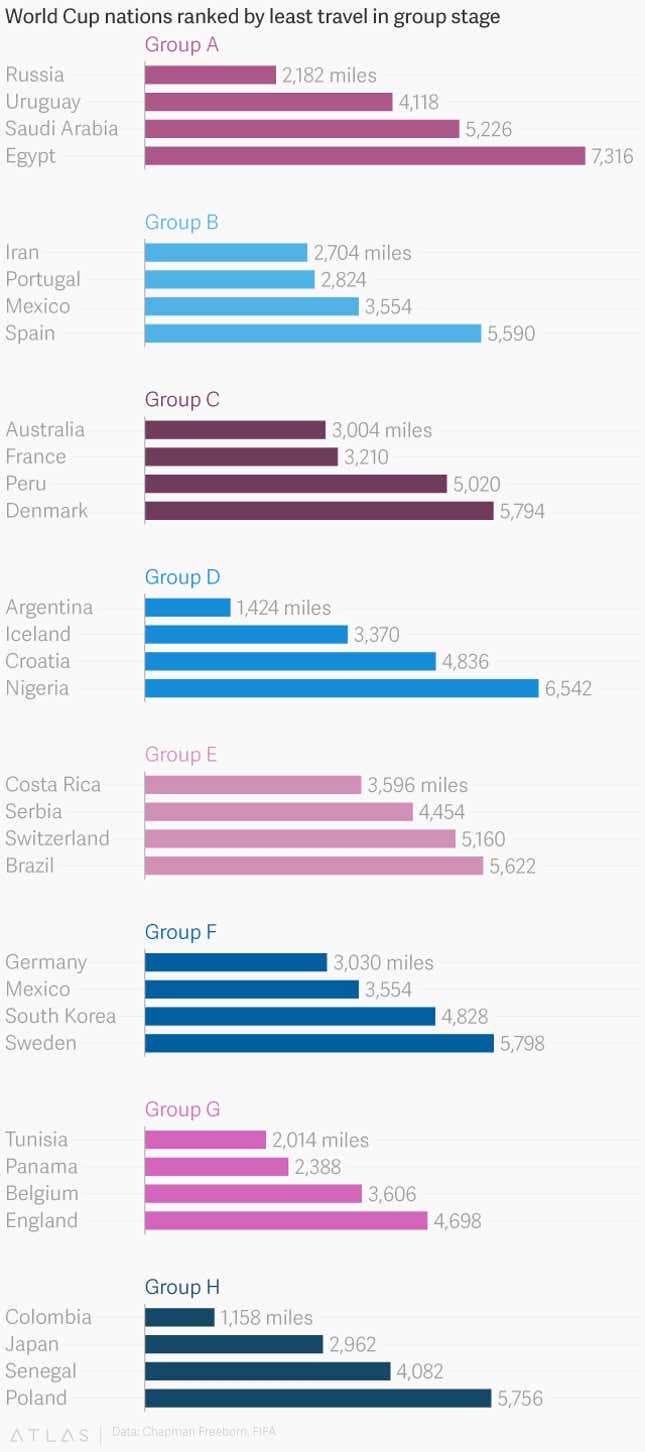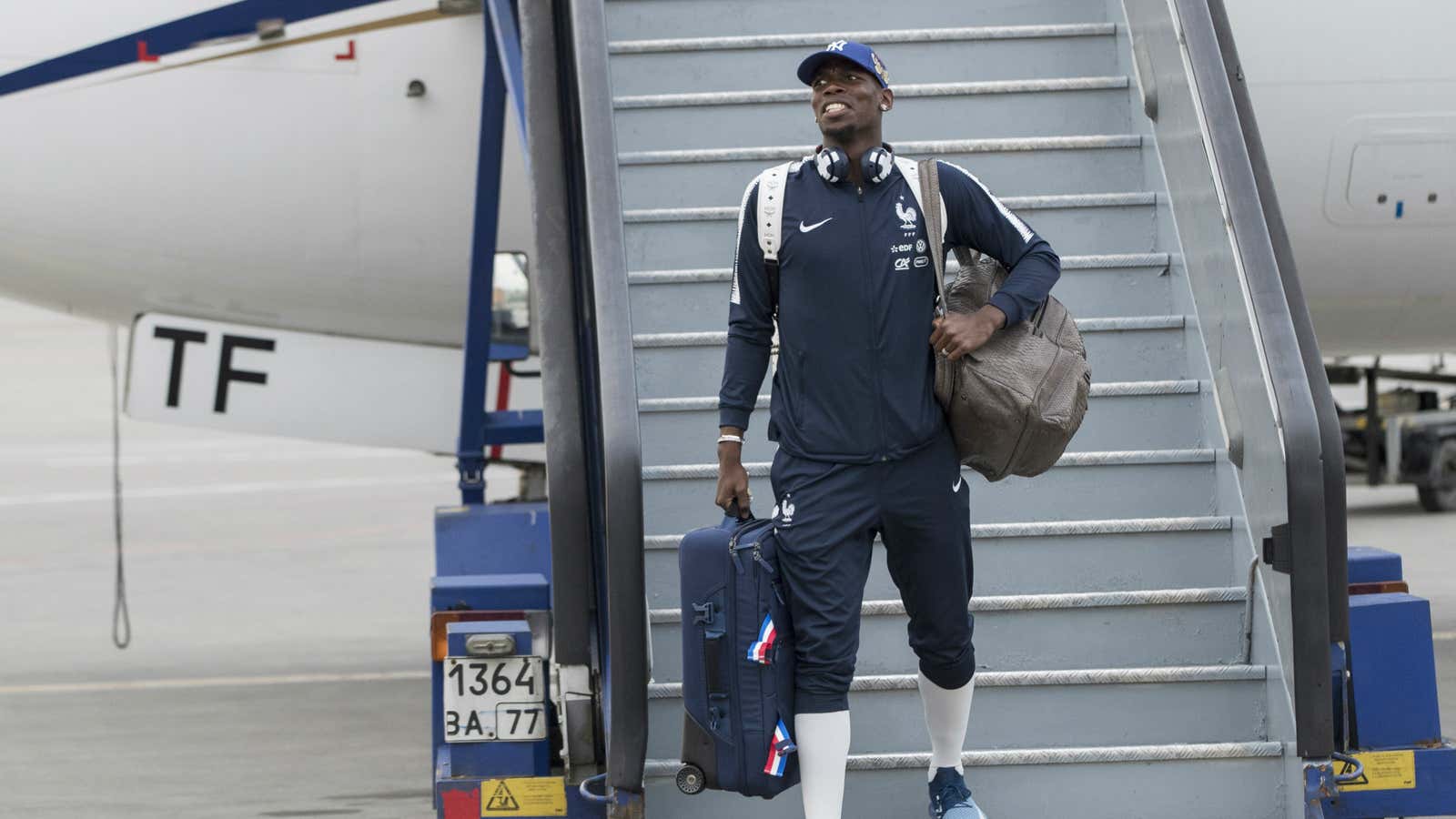Professional athletes are just like us. They’re in much better shape, of course, but they still find it hard to recover from long plane trips.
Research shows that athletes perform worse after flying long distances. For example, in Major League Baseball, while the typical away team loses 54% of the time, teams traveling across three time zones lose at a rate of almost 61%, with the effect most pronounced for teams traveling from west to east. In Super Rugby, an international rugby league that includes teams from Argentina, Australia, Japan, New Zealand, and South Africa, studies show the visiting team is at a huge disadvantage.
Jet lag will also play a role in this year’s World Cup. The competition takes place in Russia, the world’s largest country by land area. Though matches will only take place in the western half of the country, they are still spread across three time zones, at stadiums nearly 2,000 miles apart. According to data collected by the aircraft charter company Chapman Freeborn, all 32 teams will travel at least 1,000 miles from their base camp to their three matches in the group stage of the competition, and 10 teams will fly more than 5,000 miles going back and forth.
The disparity in travel between teams—Egypt will travel 6,000 more miles than Colombia during the group stage—is part luck and part planning. Not every team in a group plays their matches at the same location, putting some teams at a natural disadvantage. But they did have some agency: Each squad gets to choose their base camp for the tournament. They could choose to optimize their base for travel, or to prioritize other amenities.
England, for example, said it would base the team in the Gulf of Finland town of Repino even before their schedule was released. The team will travel the most miles of any team in its group, but manager Gareth Southgate is not concerned. The team felt it was more important to stay in a hotel they could use exclusively, so the players could unwind without distractions. In contrast, Australia based themselves in Kazan, the location of their first match against France. They believe this gives them an advantage, as France will have to travel 500 miles before the match.
No country will travel more during the group stage than Egypt. The team is set to fly over 7,300 miles to get to and from their three matches. The Egyptians chose to set up in Grozny, the capital of Chechnya—a controversial decision given the human rights abuses of the restive region’s leadership. The team will have to make a 2,400-mile round trip to its first match, while opponents Uruguay will travel half that distance. Egypt’s world-class striker Mohamed Salah may not be able to overcome this disadvantage, especially as he is battling an injury picked up at the end of the league season.
Everyone from the big banks to data scientists have published predictions for the World Cup, based on past performances, economic indicators, and more. In most cases, the prognosticators don’t seem to incorporate travel. If you made bets purely on travel distance for group-stage games—the lesser, the better—you would definitely back some big underdogs, like Australia, Iran, and Tunisia to top their respective groups. You would also go against some of the tournament favorites, with Brazil and Spain slated to crash out at the group stage.

